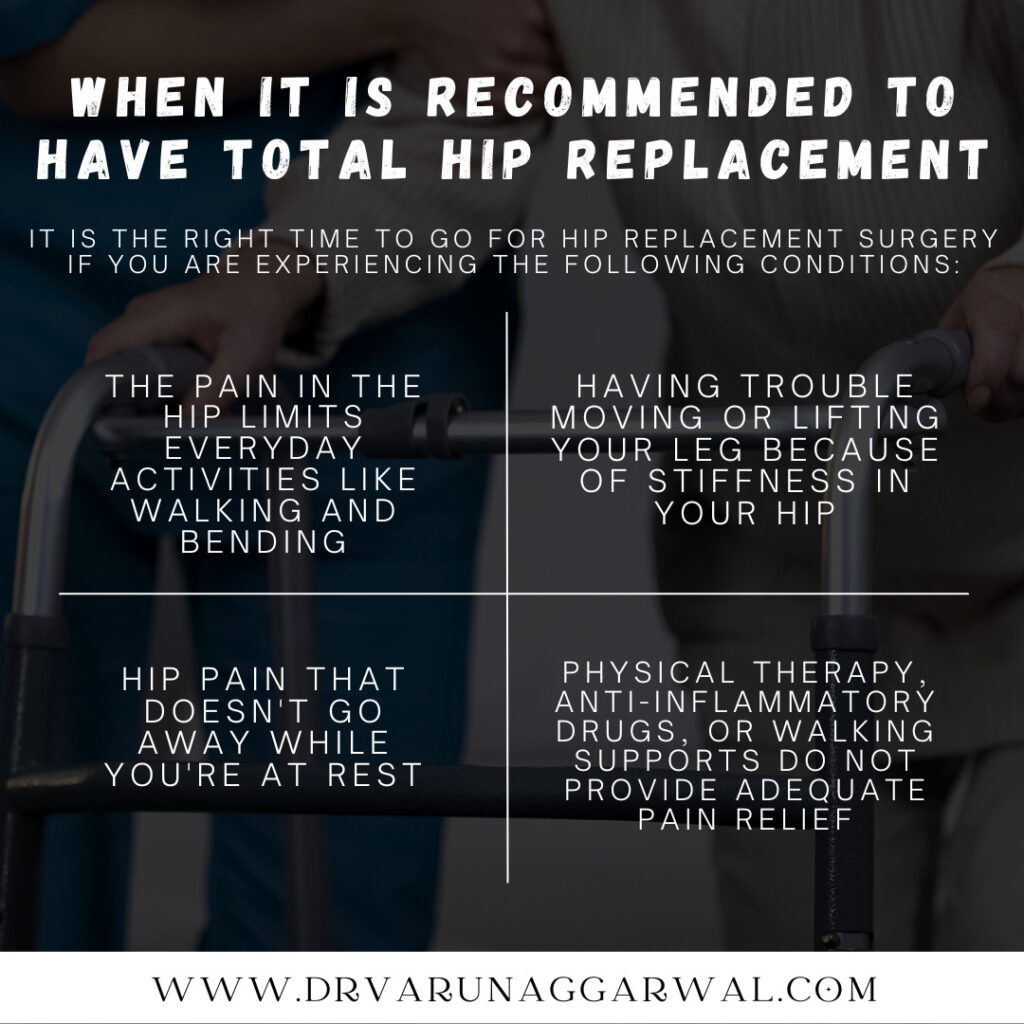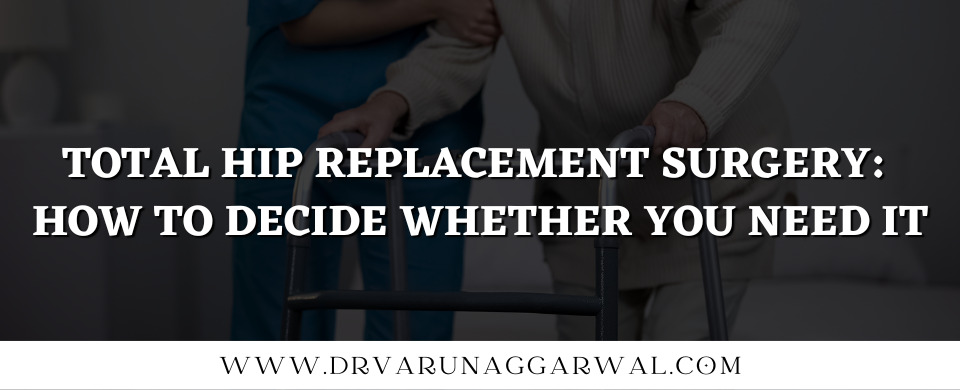Hip arthroplasty, also known as hip replacement surgery, involves removing the damaged hip joint sections and replacing them with new ones made of metal, ceramic, or very hard plastic.
If you are in as much pain as you won’t be able to sleep, bathe, clean, or go to work, you might have severe hip arthritis, and you probably require a hip replacement.
Artificial joints (prostheses) reduce pain and improve function. Most people who are experiencing trouble in doing their regular activities due to hip pain are always confused about whether they need total Hip replacement surgery or not. If you are one of them, don’t worry. Today, I am going to clear all your doubts regarding if you need Hip replacement surgery or not. So, let’s begin!
Is Total Hip Replacement Surgery The Right Choice For You?
You, your family, your primary care physician, and your orthopaedic surgeon should all work together to decide if you need total hip replacement surgery. Your doctor would normally recommend you to an orthopaedic surgeon for a preliminary assessment before making this choice.
When It Is Recommended To Have Total Hip Replacement

Hip replacement surgery may be recommended for several reasons. It is the right time to go for hip replacement surgery if you are experiencing the following conditions:
- The pain in the hip limits everyday activities like walking and bending
- Having trouble moving or lifting your leg because of stiffness in your hip
- Hip pain that doesn’t go away while you’re at rest
- Physical therapy, anti-inflammatory drugs, or walking supports do not provide adequate pain relief
Candidates for Surgery
Total hip replacements are not categorically restricted by age or weight. Surgery recommendations are based on a patient’s pain level and level of disability, not on their age.
However, the majority of patients who undergo a total hip replacement are aged 50 to 80, but orthopaedic surgeons evaluate each patient individually.
A total hip replacement can be performed at any age, including children with juvenile arthritis and elderly patients with degenerative arthritis.
After The Surgery
Most people who undergo hip replacement notice increased mobility and improvement in overall quality of life.
One of the main benefits of surgery is the relief of pain. After having the surgery, you may experience some pain at first, but you will be given medication to help ease it.
It should take two weeks for the pain associated with the surgery to begin to vanish. However, long-lasting pain can affect some people, and in these circumstances, additional care may be required.
Mobility may also improve following a hip replacement, although it may not be as good as a healthy natural hip joint. There may be less pain, so moving may be easier. However, you will probably experience greater improvement if you actively participate in your recovery – for example, by doing the exercises recommended for you.
Click here to contact for more information


